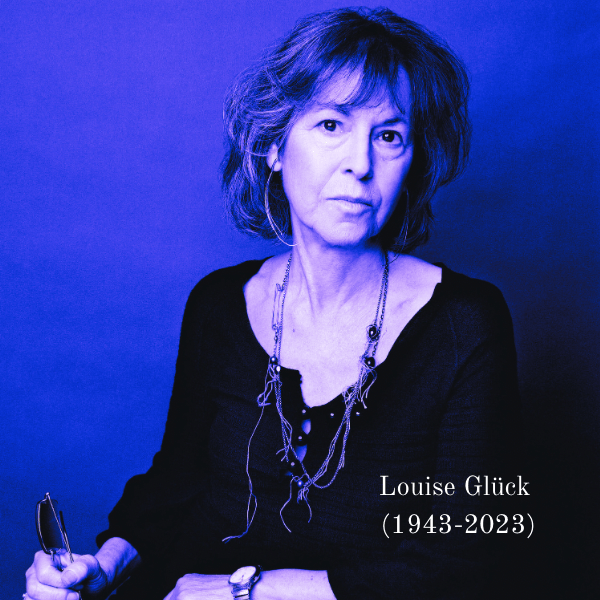EEUU. (1943-2023). Publicó su primer libro en 1968: Firstborn. Es autora de doce libros de poesía. Fue miembro de la Academia Americana de las Artes y las Letras. Premio Pulitzer de Poesía, 1993. por El iris salvaje, publicado por Pre-Textos, en 2006), Premio: William Carlos Williams. Premio Fundación Lannan, Poeta Laureada en los años (2003-2004). Premio Nacional del Libro, 2014. Premio del Círculo Nacional de Críticos del Libro y Premio Bollingen de Poesía. Tres poemarios de Glück han sido traducidas al sueco: Averno (2017), Ararat (2019) e Iris salvaje (2020). En 2020, Ganó también el prestigioso Premio: Tomas Tranströmer, Y se alzó con el codiciado Premio Nobel de Literatura 2020. “Por su inconfundible voz poética, que con austera belleza hace universal la existencia individual del ser humano”. “En sus poemas, – comenta la Academia sueca- “el yo escucha lo que queda de sus sueños e ilusiones, y nadie puede ser más duro que ella para confrontar las ilusiones del yo, pero incluso si Glück negara la importancia del trasfondo autobiográfico, no debería ser considerada una poeta confesional. Louise Glück busca lo universal, se inspira en los mitos y motivos clásicos, presentes en la mayoría de sus obras”. Enseñó en las universidades de Yale y Stanford y vivió en Cambridge, Massachusetts.

THE QUEEN OF CARTHAGE Louise Glück Brutal to love, more brutal to die. And brutal beyond the reaches of justice to die of love. In the end, Dido summoned her ladies in waiting that they might see the harsh destiny inscribed for her by the Fates. She said, "Aeneas came to me over the shimmering water; I asked the Fates to permit him to return my passion, even for a short time. What difference between that and a lifetime: in truth, in such moments, they are the same, they are both eternity. I was given a great gift which I attempted to increase, to prolong. Aeneas came to me over the water: the beginning blinded me. Now the Queen of Carthage will accept suffering as she accepted favor: to be noticed by the Fates in some distinction after all. Or should one say, to have honored hunger, since the Fates go by that name also."
A INSPIRAÇÃO La reina de Cartago Louise Glück Amar es brutal más brutal morir y brutal más allá de los confines de la justicia morir de amor Al final, Dido hizo llamar a sus damas de compañía para que presenciaran el áspero destino que le inscribieron las Parcas Esto dijo: “Eneas llegó a mí sobre el agua resplandeciente; pedí a las Parcas que le permitieran corresponder a mi pasión, así fuera brevemente. Qué diferencia hay entre eso y una vida entera: verdaderamente, en tales momentos, son lo mismo: ambos son eternidad. Recibí un gran don e intenté aumentarlo, prolongarlo. Eneas llegó a mí sobre el agua: el inicio me encegueció. Ahora la Reina de Cartago aceptará el sufrimiento como antes el favor: Hay distinción, después de todo, en ser reconocida por las Parcas. O quizás deba decirse, en haber honrado al hambre ya que por ese nombre también se conocen las Parcas.

